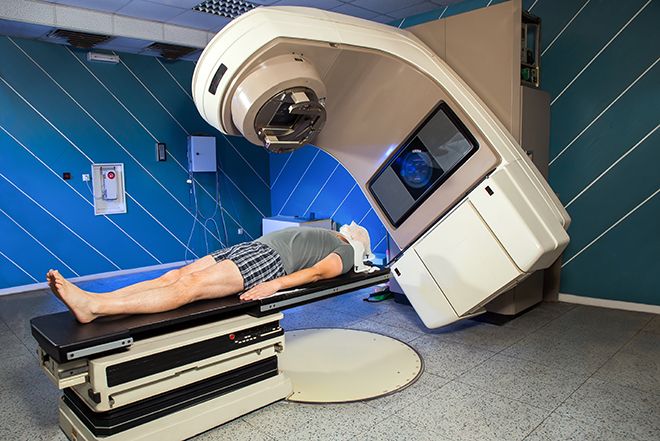
Radiation Therapy Side Effect
12 July 2023
Radiation therapy is a common treatment for cancer that uses high-energy radiation to destroy cancer cells or slow their growth. While radiation therapy can be effective in targeting cancer cells, it can also affect healthy cells in the treatment area, leading to side effects. The specific side effects experienced can vary depending on factors such as the type and location of cancer, the dose and duration of radiation, and an individual's overall health. Here are some common side effects of radiation therapy:
Fatigue: Feeling tired or exhausted is a common side effect of radiation therapy. It can range from mild to severe and may persist even after treatment ends.
Skin changes: Radiation therapy can cause skin reactions in the treatment area. These may include redness, itching, dryness, peeling, and sensitivity. The severity of skin reactions can vary based on the dose of radiation and the individual's skin type.
Hair loss: Depending on the area being treated, radiation therapy may lead to hair loss in the treatment area. This can include hair loss on the scalp, eyebrows, eyelashes, or other body parts.
Nausea and vomiting: Radiation therapy directed towards the abdomen or pelvis can cause nausea and vomiting. Medications can be prescribed to help manage these symptoms.
Appetite changes and weight loss: Radiation therapy can affect the sense of taste and appetite, leading to changes in eating habits and weight loss. Maintaining proper nutrition during treatment is important, and dietary adjustments or supplements may be recommended.
Swallowing difficulties: Radiation therapy to the head and neck region can cause inflammation and soreness in the throat, making swallowing painful or difficult. This can result in weight loss and the need for a modified diet.
Dry mouth: Radiation therapy to the head and neck area can also affect the salivary glands, leading to a dry mouth. This can cause discomfort, difficulty in speaking and swallowing, and an increased risk of dental problems.
Changes in bowel habits: Radiation therapy to the abdomen or pelvic area can cause diarrhea, cramping, or other changes in bowel movements. These effects may be temporary or persist after treatment.
Bladder irritation: Radiation therapy targeting the pelvic area may cause urinary problems such as increased frequency, urgency, or discomfort during urination.
Long-term effects: In some cases, radiation therapy side effects may persist or develop months or years after treatment. These can include tissue fibrosis, organ dysfunction, secondary cancers, and fertility problems, depending on the area treated and the dose received.
It's important to note that not all individuals will experience these side effects, and the severity can vary. Radiation oncologists work closely with patients to minimize side effects and manage any discomfort or complications that may arise during treatment. If you're undergoing radiation therapy, it's essential to communicate any concerns or symptoms to your healthcare team so that they can provide appropriate support and care.